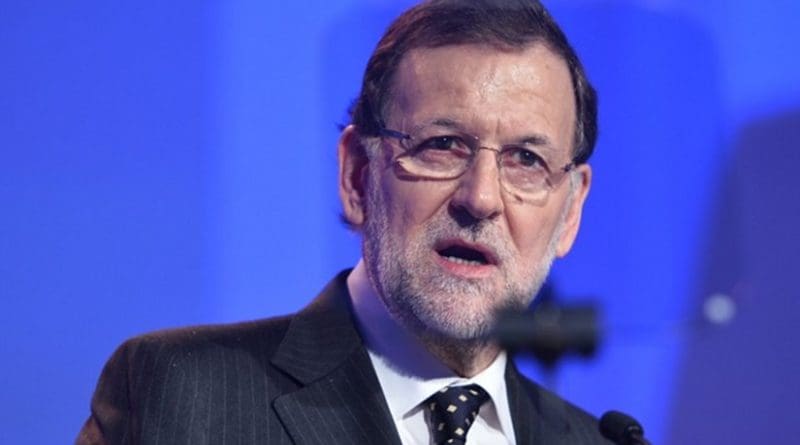Spain: PM Rajoy Says Catalonia Situation To Be Resolved ‘With Dialogue’
Spain’s Prime Minister Mariano Rajoy recalled during question time in the Lower House that the person who proposed that the Catalan elections last Sunday should be a referendum had not achieved his aim, given that most of the citizens had taken a position against independence.
On another front, Rajoy stressed that there had been “a very significant strengthening of collective agreements” and a reduction in redundancy plans.
During question time, both the Catalan member for CiU, Josep Sánchez Llibre, and the leader of the PSOE, Pedro Sánchez, asked Mariano Rajoy questions about the situation in Catalonia following the elections on Sunday.
In his answers, the Prime Minister said that the person who called the Catalan elections and presented them “as if they were a referendum has not achieved his objectives” because “most people have said that they were not in favor of independence.” In other words, before he did not have the support of the law and “now he doesn’t have the support of the citizens either.”
“Catalonia has to enter a stage of normality”
Rajoy insisted that after the results on 27 September, “what has to be done is to form a government as quickly as possible, and to ensure the law is obeyed”, in order not to generate more “uncertainty, instability and division in Catalan society as a whole”. In his opinion, the Catalans have to “enter a period of normality, a period that is characterized by collaboration, institutional dialogue” and respect for the law.
Rajoy also pointed out that in this process he has complied with his obligation as Prime Minister of the Government, and recalled that “we are all obliged” to comply with the law, which is what governs how citizens live together.
In defense of constitutional loyalty and dialogue
At the same time, Rajoy recalled that he has always been prepared to talk “within the framework of the law” with the President of the Catalan Government, and has questioned those who aim to do away with “basic principles” such as “national unity, national sovereignty and equality between Spanish people”.
In any event, Rajoy said that in the future, the situation in Catalonia would have to be resolved “with dialogue, with courtesy and without anxiety.” He reproached the Socialist leader Pedro Sánchez for having maintained a position that is equidistant between “someone defending the Spanish Constitution and someone challenging the State by aiming for independence.” In addition, he urged him to set out clearly what the Constitutional reform he demands consists of, because “if not, we are going to think that it is a mere slogan.”
Redundancy plans have fallen by 40%
In response to the member for Izquierda Plural group, Cayo Lara, the Rajoy said that the labor reform had served to reduce labor conflict, as it has made collective bargaining more flexible and currently “layoffs are no longer the last resort.”
According to data provided by the Prime Minister, collective agreements have increased by 43%, while redundancy plans (EREs) have fallen by 40%. In addition, labor flexibility has meant that 300,000 people have been able to maintain their jobs thanks to 6,337 opt-outs from the provisions of collective agreements. There are also fewer strikes and fewer days not worked.
But for Rajoy, the best data are those for job creation and Social Security membership released in recent months. In addition, according to the European Commission’s Economic Office, Spain is the country with the second highest growth in permanent employment in Europe.
To sum up, Rajoy said “the economic situation is much better than it was at the start of this term in office, and we have overcome the serious economic crisis better than the vast majority of countries in the EU.”
The accusation against Artur Mas
At the close of question time, once in the corridors of the lower house, Rajoy was asked about the decision of the High Court of Justice of Catalonia to question Artur Mas as accused in relation to the ballot call on 9 November. He insisted that “it is false, and what is more profoundly unfair, to attribute this type of decision to the Government. This is a decision that corresponds to the body that has taken it, the High Court of Justice of Catalonia.”
Rajoy defended the separation of powers: “Here we have a separation of powers. The Government has nothing to do with the decisions taken by the High Court of Justice of Catalonia, and the only thing we do, as with any other court, is to accept and respect them and that is what I believe we should all do. We therefore respect the division of powers, and this is a judicial decision.”
Rajoy said that Artur Mas should “appear and explain what he is asked,” as in the case of “any other person who may be called to answer questions in court” because “in a democracy judicial decisions are respected, whether we like them or not.”

